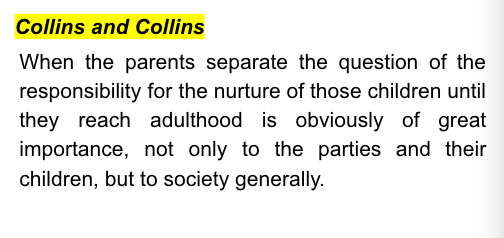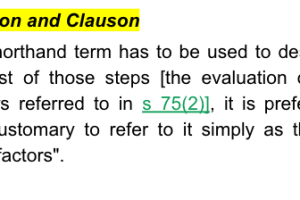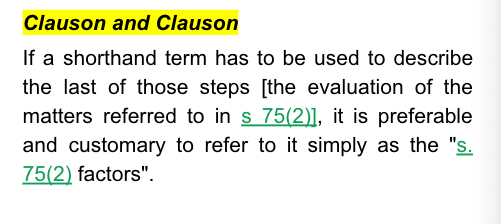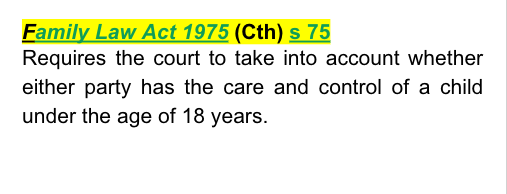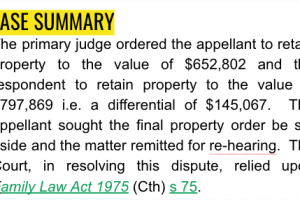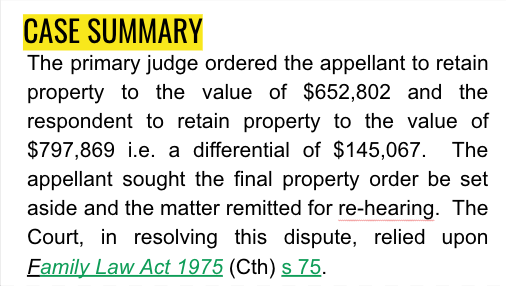- · 4849 friends
Applicant claims Judge failed to consider future working capacity when determining property orders

Bidwell & Bidwell [2022] FedCFamC1A 154 (5 October 2022)

The primary judge ordered the appellant to retain property to the value of $652,802 and the respondent to retain property to the value of $797,869 i.e. a differential of $145,067. The appellant sought the final property order be set aside and the matter remitted for re-hearing. The Court, in resolving this dispute, relied upon Family Law Act 1975 (Cth) s 75.

Facts
The parties were a married couple who cohabitate for approximately 17 years before separating in March 2016 and divorcing in 2020. The parties have one child who was 14 years of age at the time of judgment. The child lives with the mother and spends little time with the father, although both parties expressed a wish for that to change after the proceedings. At the date of trial, both parties were in full time work, with the appellant earning about $140,000 per annum and the respondent earning about $105,000 per annum.
The property of the parties or either of them was found by the primary judge to be worth $1,450,671 including superannuation. As already noted, the primary judge divided the property in the proportion 55/45 in favour of the respondent, with the result that the respondent was to retain her superannuation of $292,505 and receive a cash payment from the appellant of $505,364, in default of which the former matrimonial home was to be sold.
The appellant submits that the primary judge fell into error by: (a) Failing to make a finding on what is described as an “unresolved issue” as to “how long” the appellant could continue to work; (b) Failing to make a finding as to “how long [the respondent’s] earning capacity was”; (c) Finding the respondent’s future needs were greater than the appellant’s due to her “primary financial responsively [sic] of the parties’ only child”, which is described by the appellant as the “critical if not the only reason”. Ultimately, the primary judge found that the appellant may need to delay his retirement and that “there was no evidence of an incapacity to work” and “no evidence that he will be unable to continue working for any other reason”. 
Issue
Whether or not the appeal should be granted.

Applicable law
Family Law Act 1975 (Cth) s 75 - requires the court to take into account whether either party has the care and control of a child under the age of 18 years.



Analysis
There was no indication at trial that the primary judge was required to determine an “unresolved issue” as to how long each of the parties would continue employment. The supplementary written submissions at paragraph 12 filed by the appellant on 12 January 2022 do not mention any “unresolved issue” as claimed, and repeats the submission that the [appellant] cannot expect as long a future working life as the [respondent] can expect as there is a significant 12 year age gap. The appellant made no mention in his trial affidavit of any impediment to his continuing ability to work. There was no medical evidence that the appellant’s medical conditions would prevent him from continuing in the work force, if he chose to do so.
The primary judge found, consistent with the evidence, that the respondent was likely to remain the primary carer for the child and that it was “unlikely that the appellant would assume primary responsibility (including financial responsibility) for the child”. Contrary to the appellant’s submission, the primary judge did consider the respondent’s earning capacity. It was common ground that the respondent earned considerably less than the appellant but has a longer working life remaining, given the 12 year age difference. Even if the appellant continued to work for only another two years, the income disparity alone would be $70,000.
Conclusion
The Notice of Appeal filed 7 June 2022 is dismissed. The appellant shall pay the costs of the respondent of and incidental to the appeal fixed in the sum of $12,000 within 28 days.



